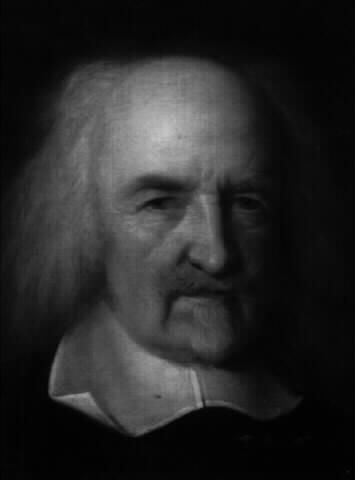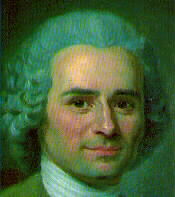|
Links |
|
Links |
|||
|
|
- Biography | ||||
| - Project: Montesquieu & the Enlightenment |
|
||||
| Monte was one of the 1st to try to formulate the basic uniformities of all human behavior |
|
||||
| Monte was influenced by Vico ( 1668 - 1744 ) who was one of 1st to construct a philosophy of society & history |
|
||||
| Monte is the 1st to be recognized as constructing a philosophy of society & history |
|
||||
| Vico saw regularity, order, & causation in physical & natural worlds | |||||
| While Vico saw phases of development, or cycles, Monte saw progress as did many during the Enlightenment |
|
||||
| Review: The Enlightenment | |||||
| METHODOLOGY | |||||
| Monte sought laws of social & historical development via the scientific method |
|
||||
| Monte discovered/formulated the scientific method | |||||
| See Also: The Scientific Method | |||||
| Monte was influential in the development of the concept of the ideal type | |||||
| Monte believed an ideal type should be universal, but must be tailored to fit each specific example | |||||
| Monte advocated the study of social facts | |||||
| Monte was one of the 1st to propose social laws | |||||
| Monte was an important contributor to the concept of the orderliness of nature, which was important to the Enlightenment thinkers |
|
||||
| Monte was influential in the sociology of knowledge, i.e., study of what we consider to be knowledge, as opposed to tradition, faith, common sense, etc. | |||||
| SOCIAL ACTIONS DETERMINE SOCIAL IDEAS | |||||
| Monte developed his analysis around the concept of spirit, but today we might use the terms ideology or culture for spirit |
|
||||
| Like Monte, Weber also uses the term spirit in a similar vein in his Protestantism and the Spirit of Capitalism. (1920) | |||||
| For Monte, & many theorists today, social position determines ideology, which is one's views of society, i.e. one's customs & ideas, world view |
|
||||
| One of the biggest debates in the social sciences, & even among the general population is whether Monte is correct & social position determines ideology (Conflict Theory) or whether ideology determines social position (Functionalism, Post Mod, etc.) |
|
||||
| In practice, either position can be true, depending on the particular psycho socio historical conditions | |||||
| For more on this debate, see ideology, false & class consciousness | |||||
| Monte proposed that general social ideas develop over time along w/, or as a result of the development of society |
|
||||
| The development of general social ideas influencing the development of society is the thesis of Weber in his Protestantism and the Spirit of Capitalism,. & is also similar to much of Hegel's work |
|
||||
| For Montesquieu, because material life does affect consciousness, ideas, spirit, consciousness, therefore ideas & actions are functionally interdependent |
|
||||
| SOCIAL INSTITUTIONS | |||||
| Monte noted the interdependence of social institutions | |||||
| All instit's in society are interdependent to one another & to
the whole of society as seen in the interdependence of
- education - justice - marriage - family - politics, etc. |
|||||
| Monte’s work on forms of government greatly influenced the writing of constitutions throughout world, including US Constitution | |||||
| Monte applied social theory to the fall of Rome & from this he discovered much of his social theory | |||||
| HUMAN RIGHTS | |||||
| Montesquieu believed that liberty was based on the balance of power | |||||
| Monte supported human freedom & opposed tyranny | |||||
| Monte proposed that liberty is based on separating legislative, executive, & judicial powers | |||||
| Respect for law & liberty could exist side by side | |||||
| A major concern for Monte was relationship of power to freedom | |||||
| People are not free because they have natural rights or because they revolt, they are free because power is distributed & organized so as to prevent, or minimize its abuse | |||||
| Liberty is preserved where interest groups or publics check one another as well, as the govt, & where such checks & balances are integrated into law | |||||
| In the Persian Letters, 1721, Monte looked at French culture from another point of view, Monte traveled to Germany, Austria, Italy & England, & was impressed by English govt | |||||
| Monte ridiculed Parisian life & many French institutions & he also criticized the church & national govts of France | |||||
| Monte, 1689 - 1755, believed, like Locke, 1632-1704, that people are essentially morally neutral, & not filled w/ values at birth, tabula rasa | |||||
| For Locke, & then Monte, we are a tabula rasa at birth & then we are socialized to our society's values | |||||
| For Monte, one's position in the division of labor, one's occupations & professions, determines one's character as well as one's outlook on life | |||||
| We are not born w/ a character, nor are we born w/ instincts, as is believed today | |||||
| - Human nature | |||||
| - Locke, 1632 - 1704 | |||||
| Monte believes that social differentiation is an important & socially valuable societal quality | |||||
| Societal forms depend on certain conditions: e.g., the volume of society | |||||
| As population grows, a single person cannot perceive all the changes & factors of society | |||||
| Social differentiation means that an increased population & stratification gives rise to divergent views and objectives | |||||
| Differentials in property yield unequal power | |||||
| As differentials in property develop, a republic must give way to a monarchy | |||||
| If the checks in a society fail, despotism will arise | |||||

Montesquieu
1689-1755
Born
Charles de Secondat, near Bordeaux, France
Monte was a philosopher & jurist who was educated at Bordeaux &
became an advocate, but turned to scientific research & literary work.
He settled in Paris in 1726, then spent some years traveling & studying
political & social institutions. His best-known work is the comparative
study of legal and political issues, The Spirit of Laws (1748), which was
a major influence on 18th century European political thought.
|
|
||||
|
The principle of separation of powers, or of checks and balances, which is characteristic of the Constitution of the United States was formulated in such a striking manner by Montesquieu that Thomas Jefferson, Alexander Hamilton, John Adams, and James Madison and other founders of the United States were deeply impressed by it, and held it more or less clearly in their minds when they gave the Constitution is shape. Montesquieu was a high judge in France but he was very critical of the regime which he served. In his youth he had been a member of the "First Floor Club" in Paris, a secret society strongly opposed to absolutism and clerical orthodoxy. He remained faithful to the club's principles but became rather moderate in his judgment on the advantages of other political systems. His Persian Letters (1721), a thinly veiled satirical criticism of French life, made a great sensation. His Reflections on the Causes of the Greatness and the Decadence of the Romans (1734) is considered one of the most important monuments of modern historical literature. The very spirit of Roman civilization is grasped and brilliantly illustrated by Montesquieu, however much scholars of later times may object to his treatment of details. Montesquieu's major work, The Spirit of Laws (1748), was the result of fourteen years of strenuous study into political history and comparative legislation, of reading sources and observing life by traveling through many countries of Europe, and above all, of a stay in England where he arrived on Lord Chesterfield's yacht. Montesquieu admired England, though not uncritically. Its institutions, in his opinion, guaranteed and realized the highest possible degree of freedom, and he derived this view from the application of the principle of checks and balances. This view is not shared by modern constitutional historians or jurists, least of all concerning the England of Montesquieu's days. But his work has been of lasting value to the development of methods of analyzing political, social and legal conditions and their connection. Next to John Locke, Montesquieu was the most influential champion of liberalism in the 18th century. Some ideas put forth by Montesquieu have had an influence on Classical Liberalism. From: Adventures in Philosophy
|
|||||




